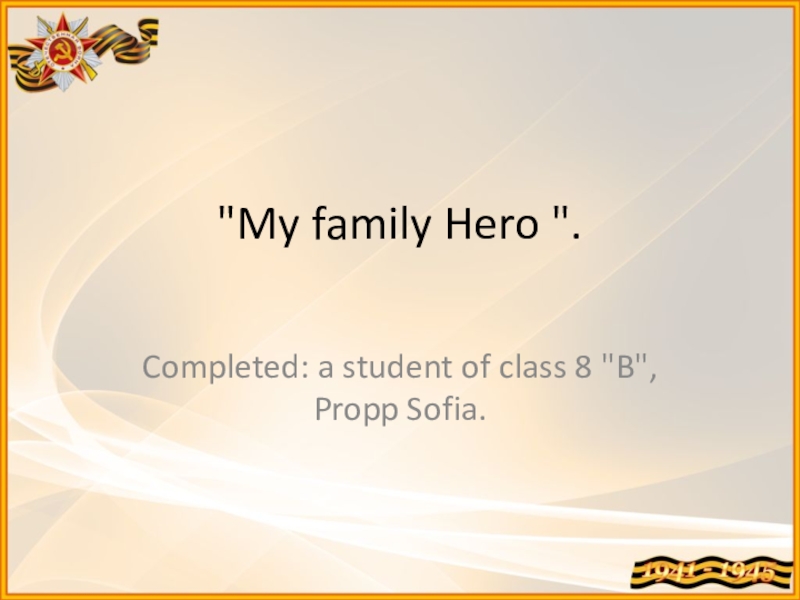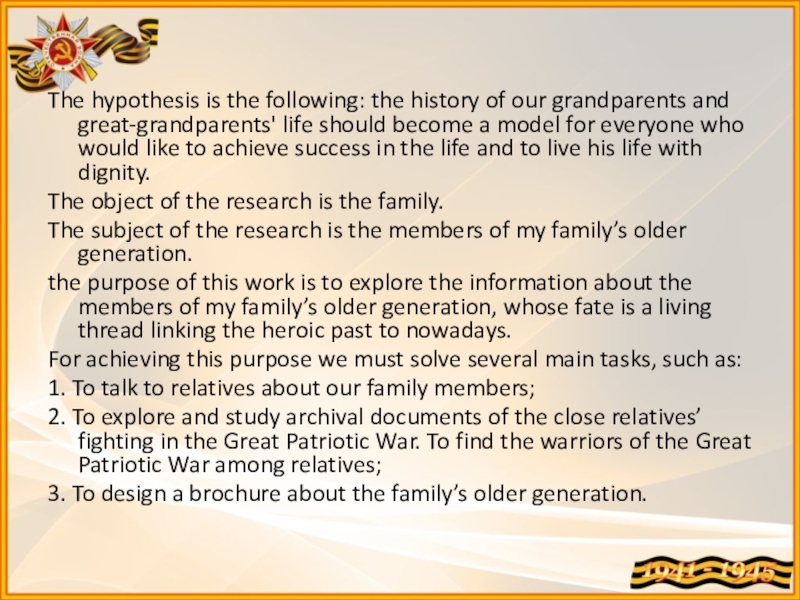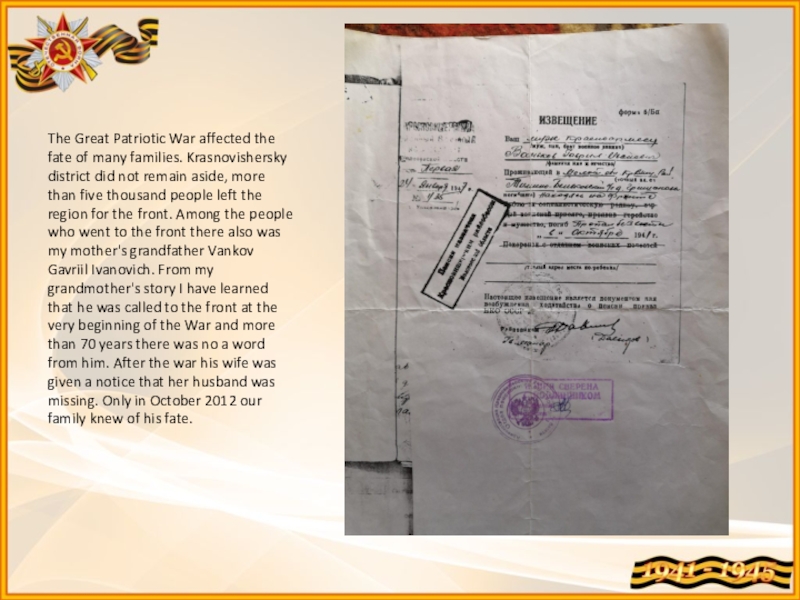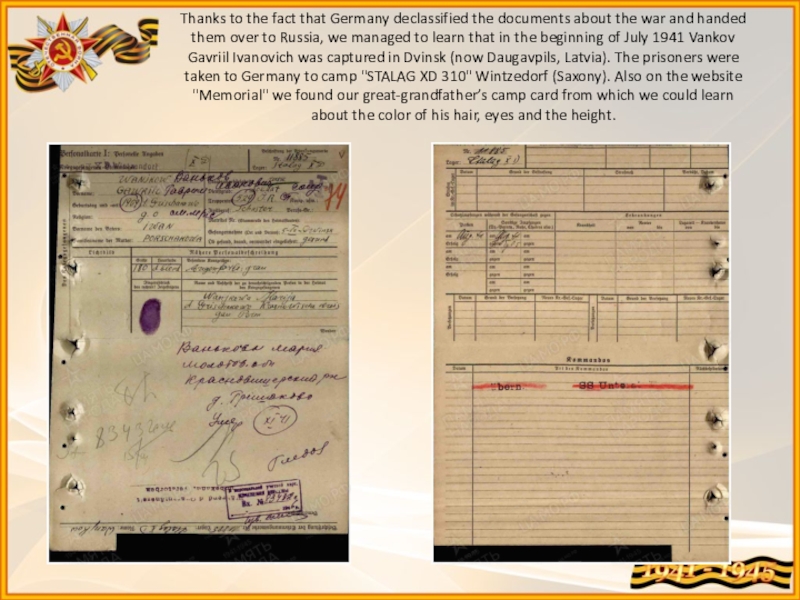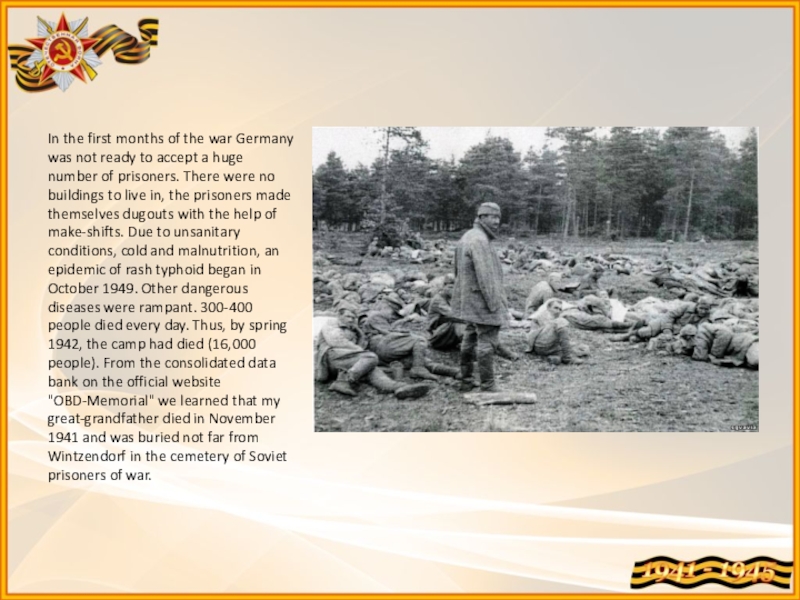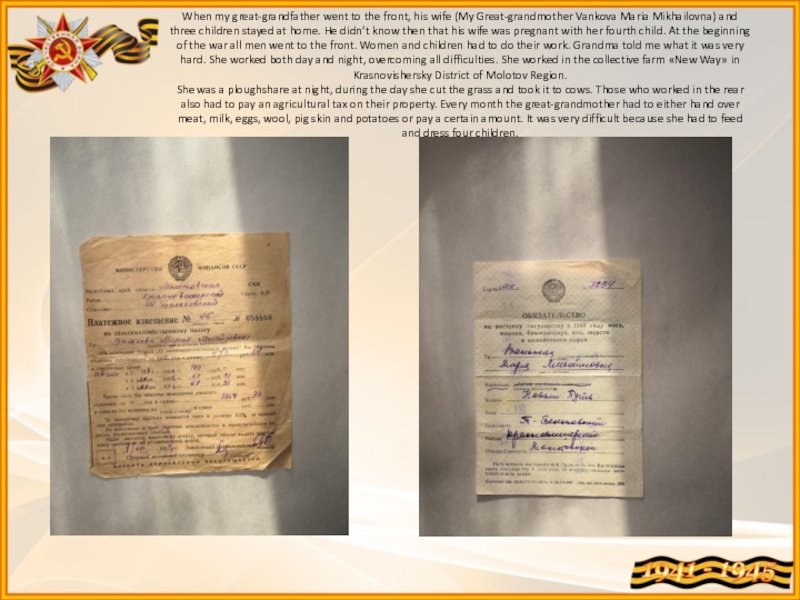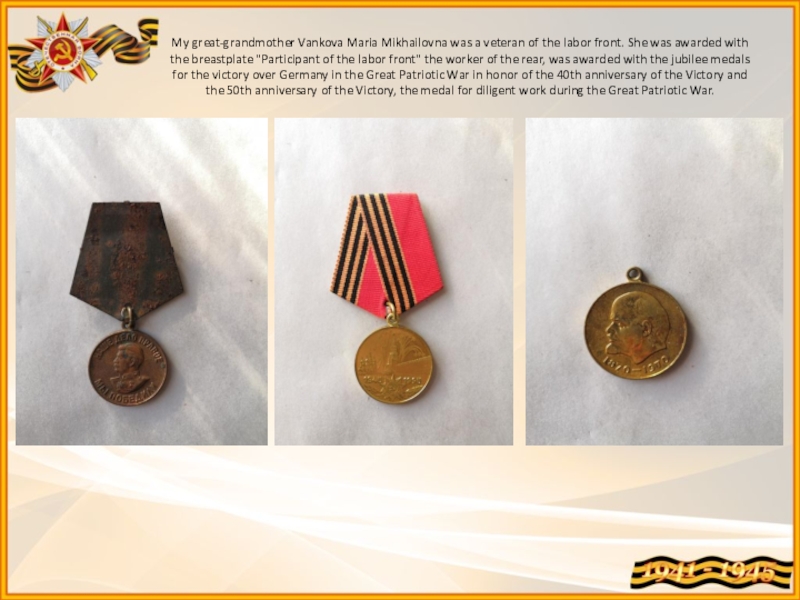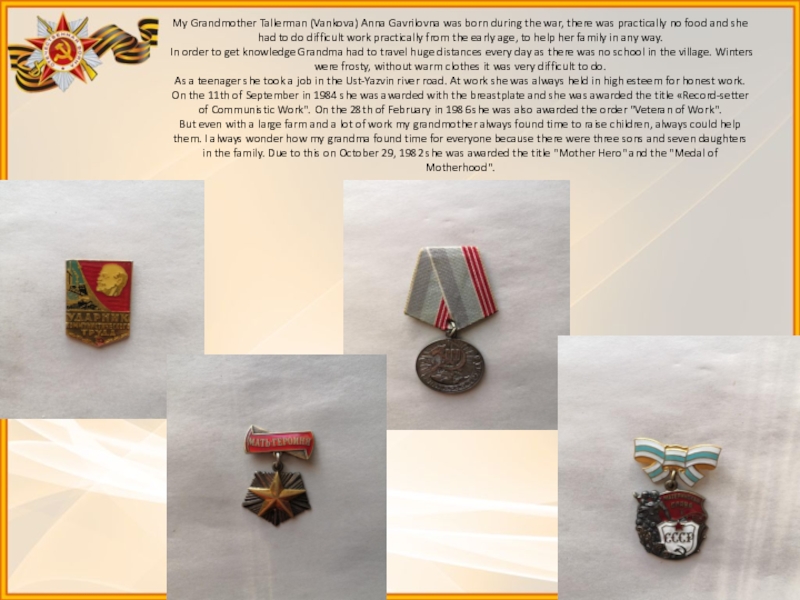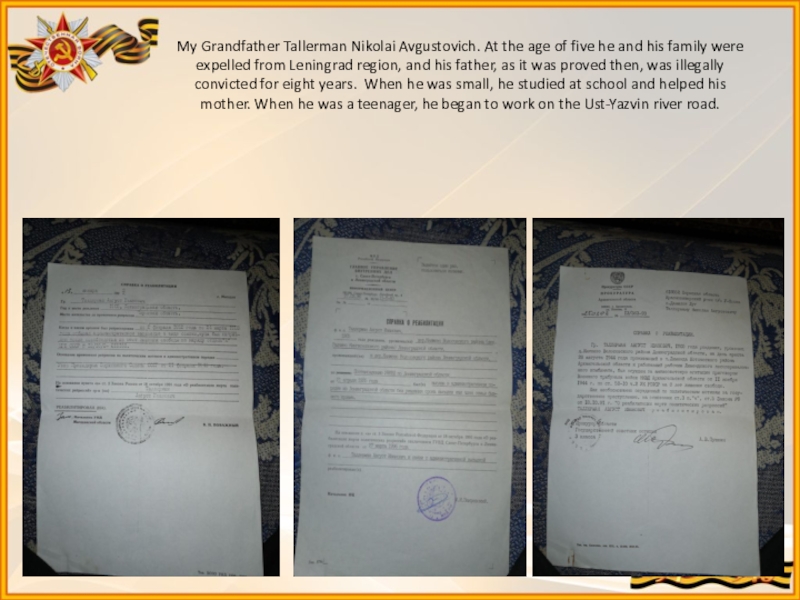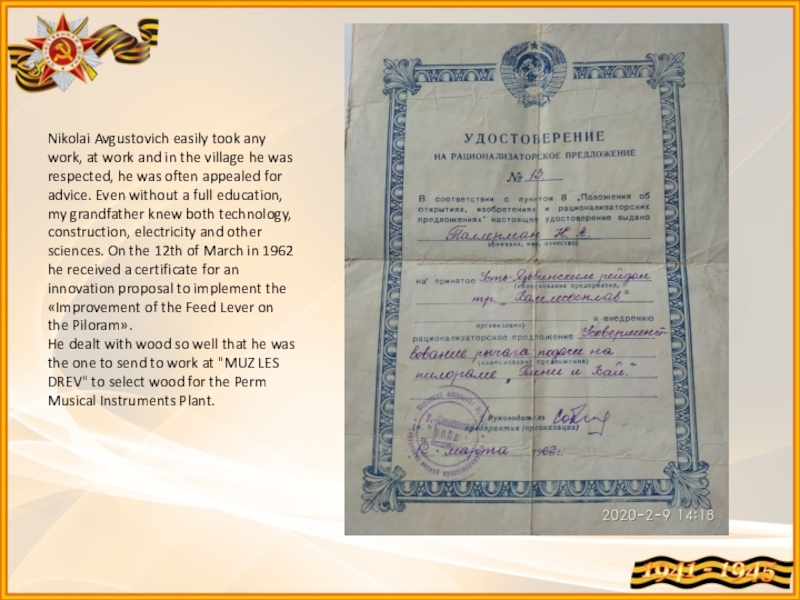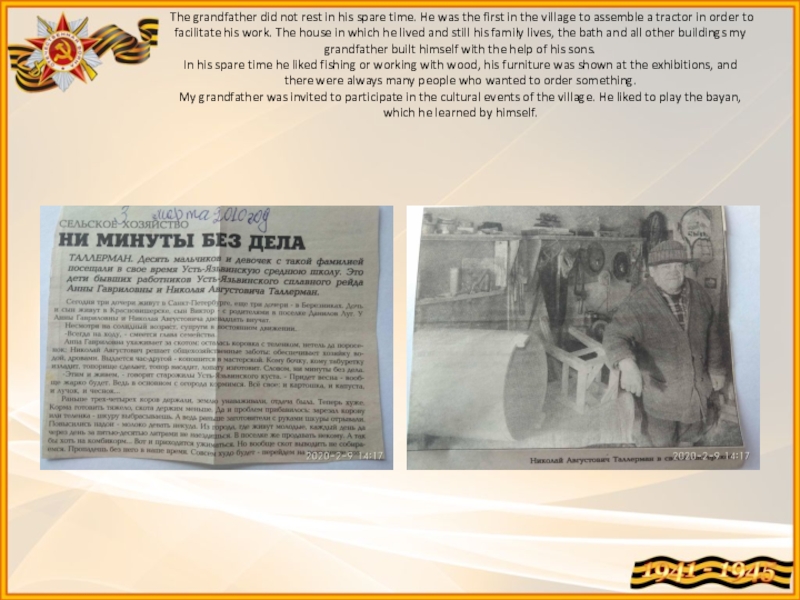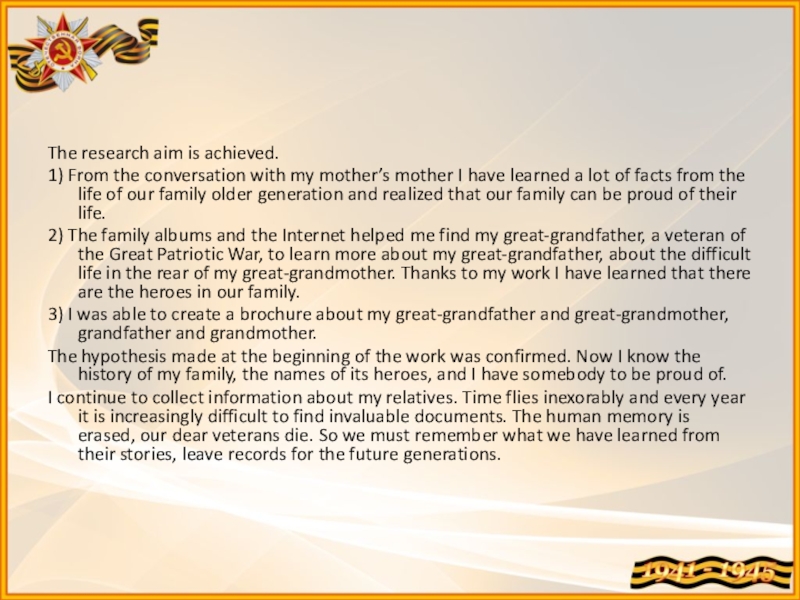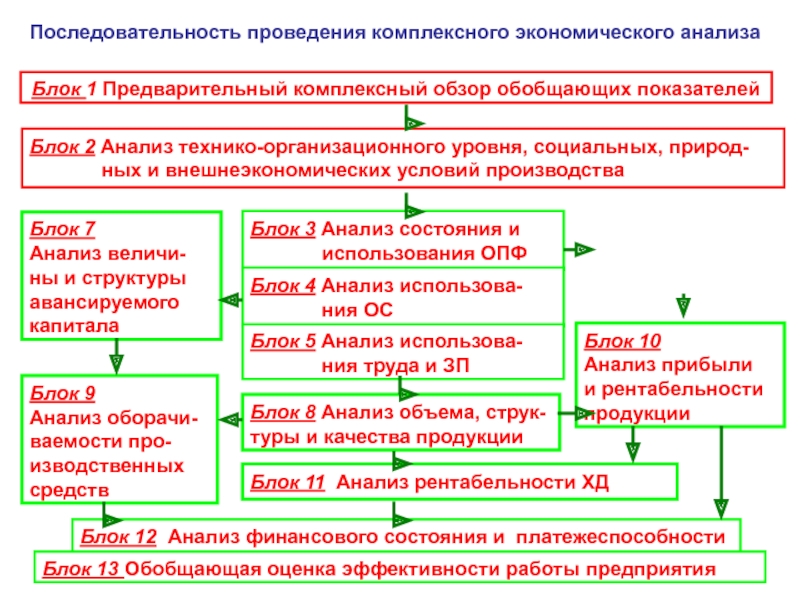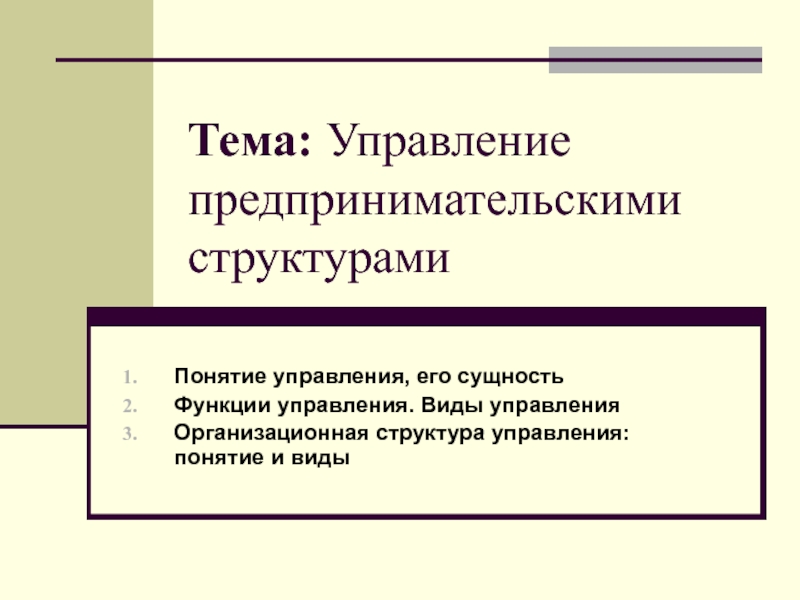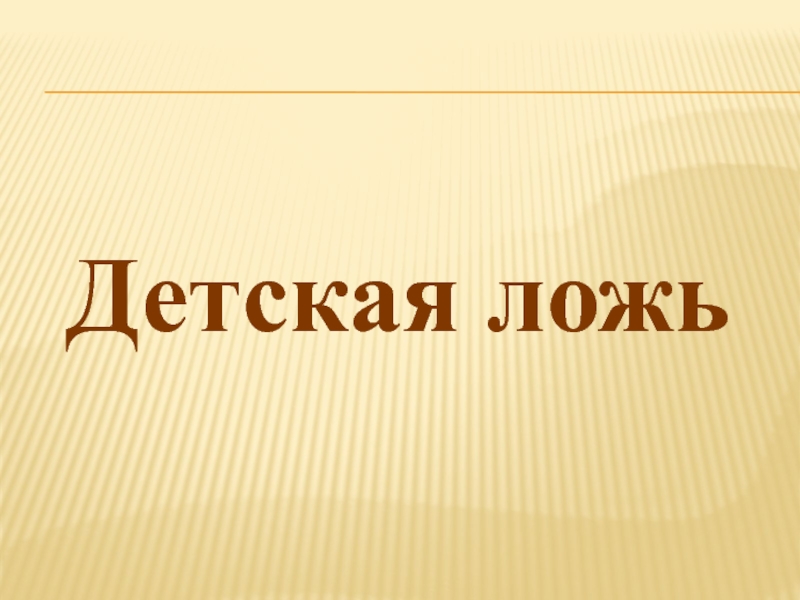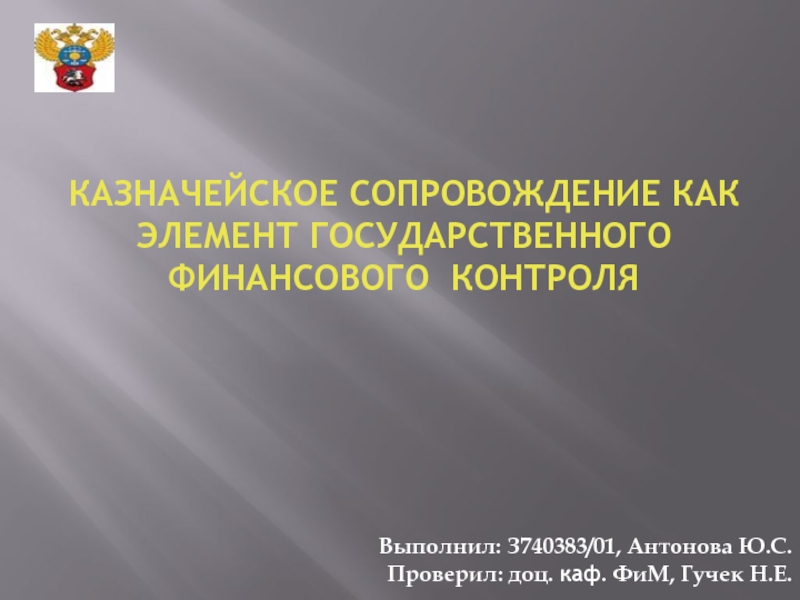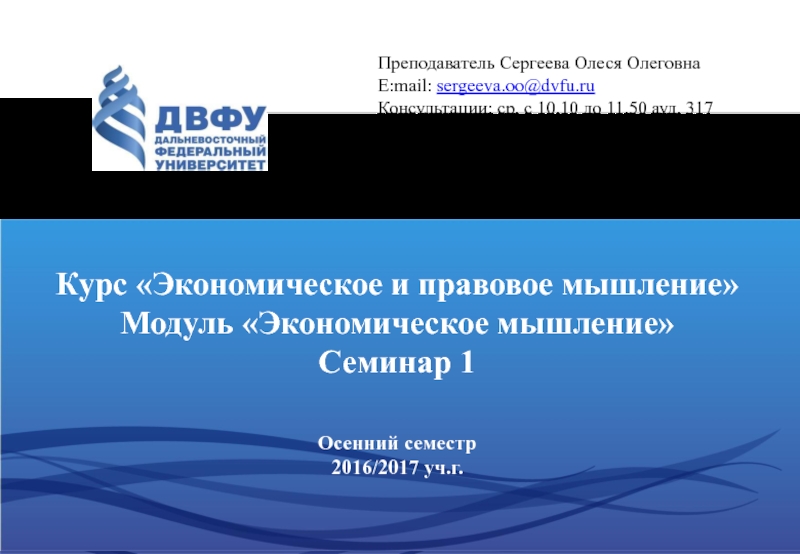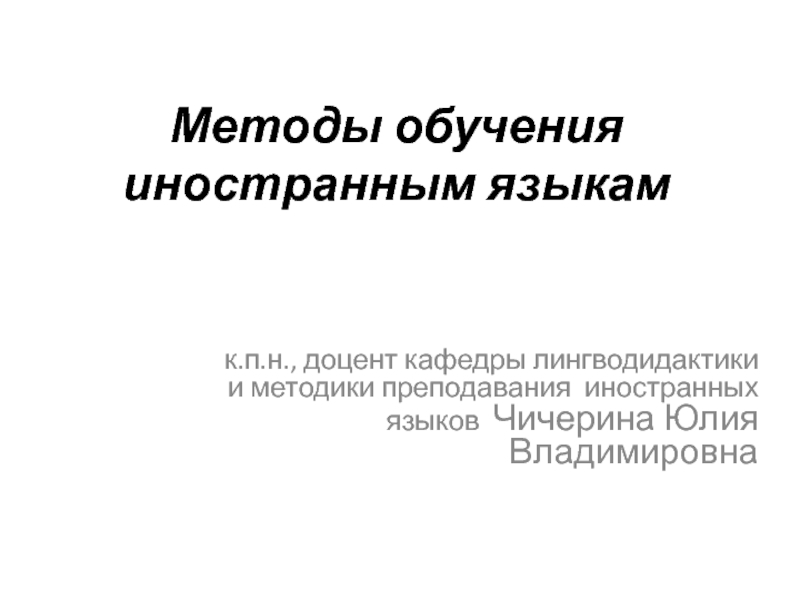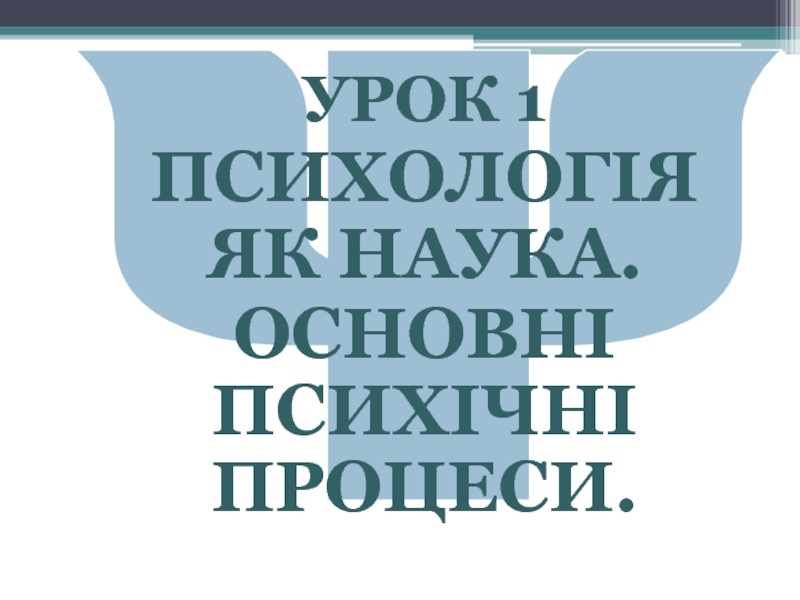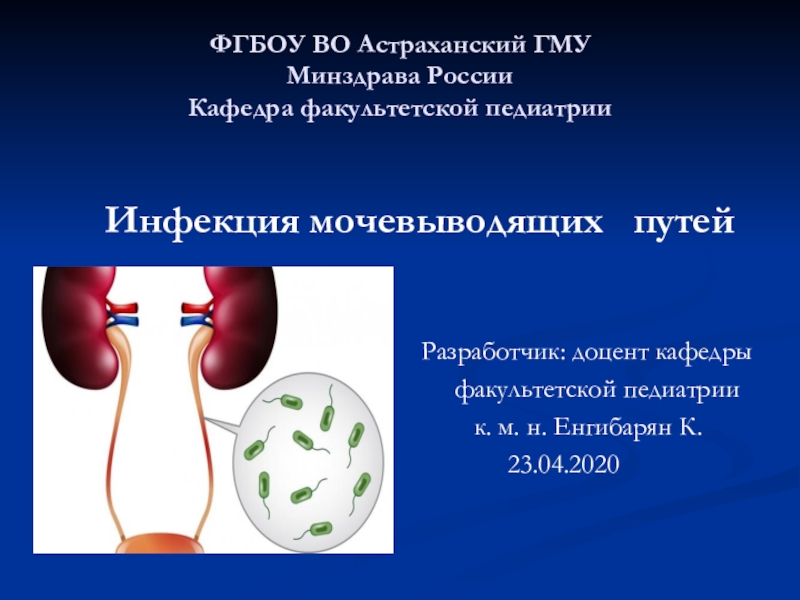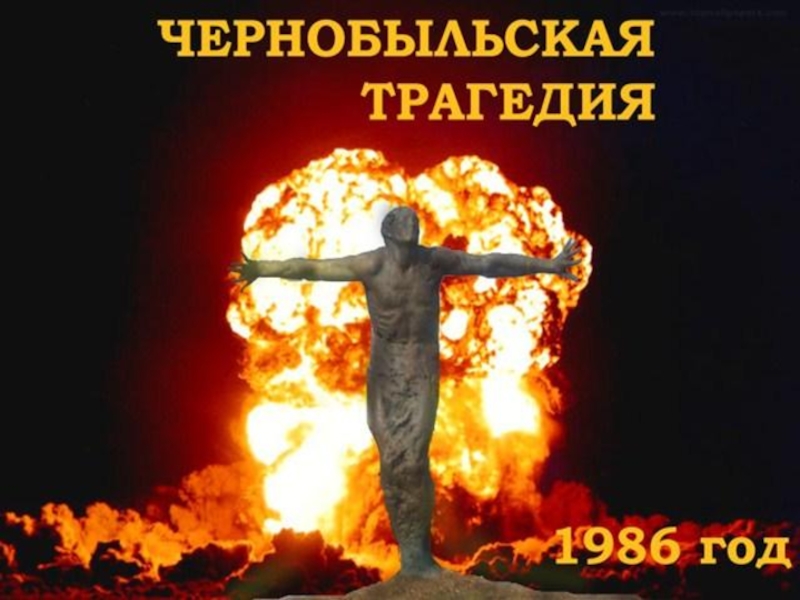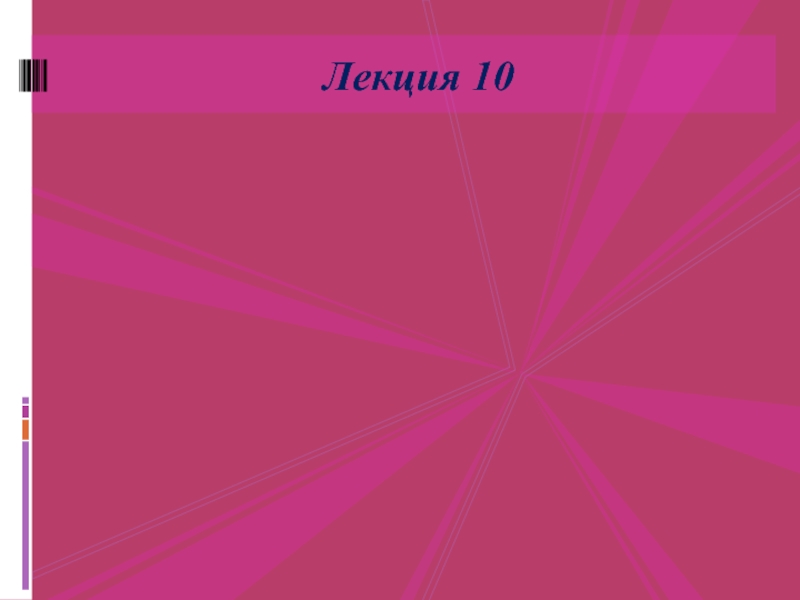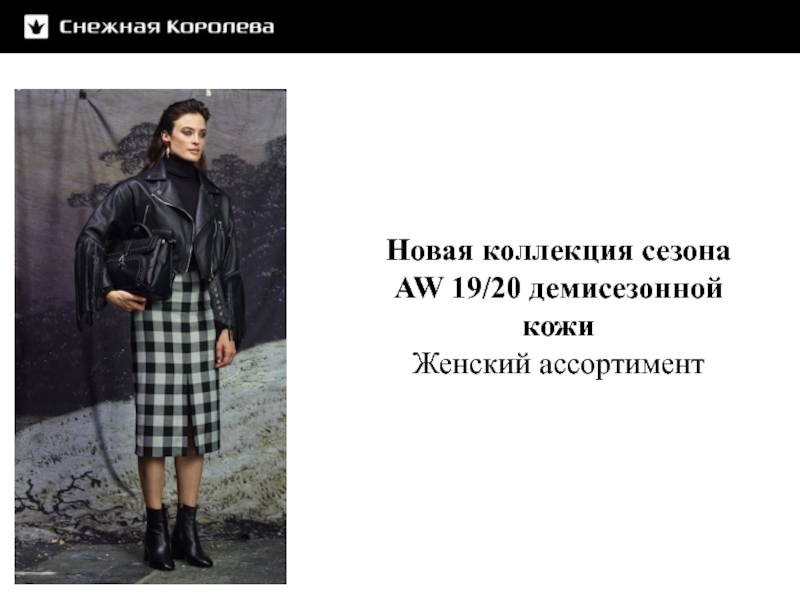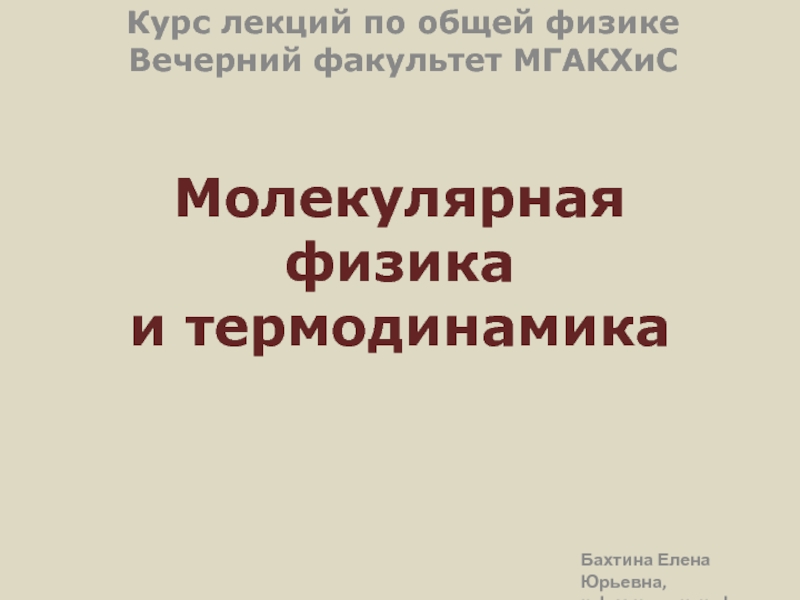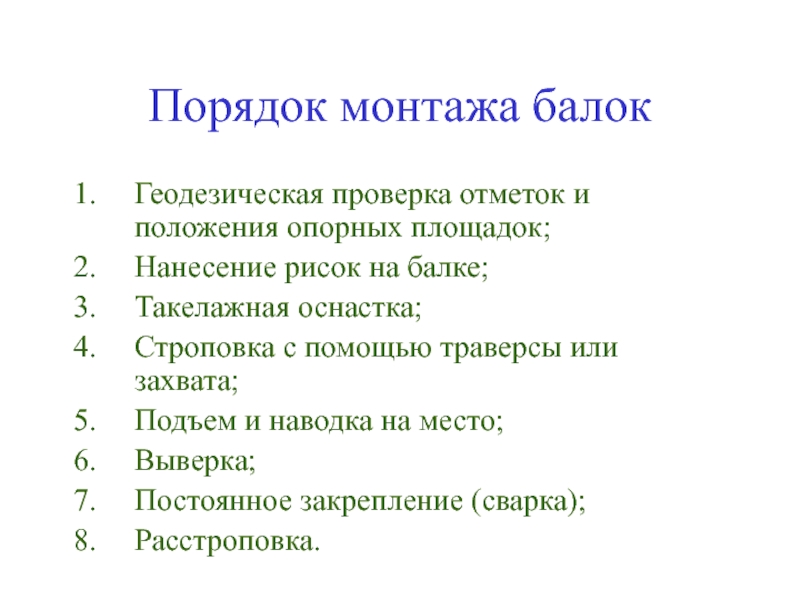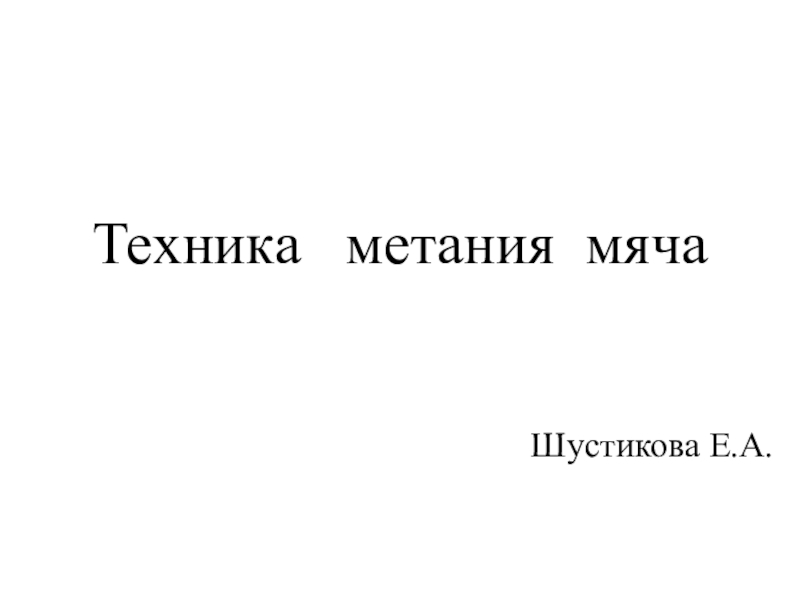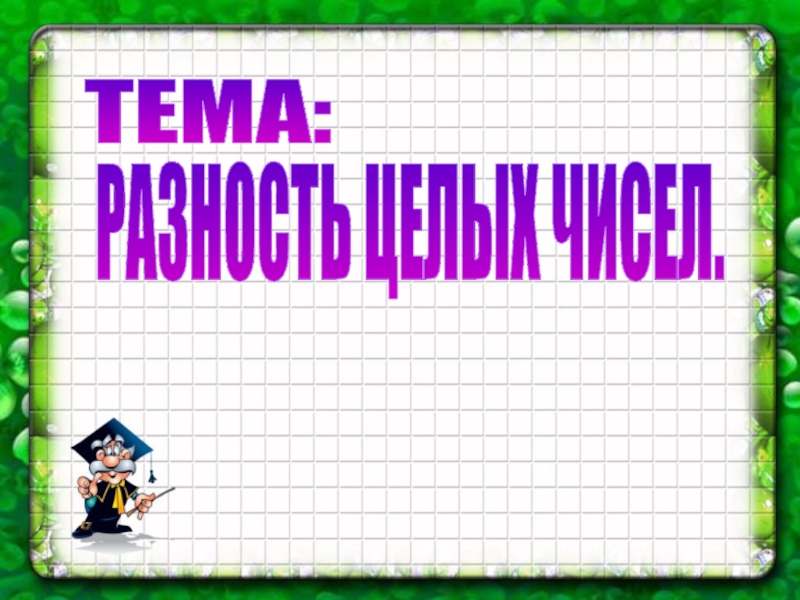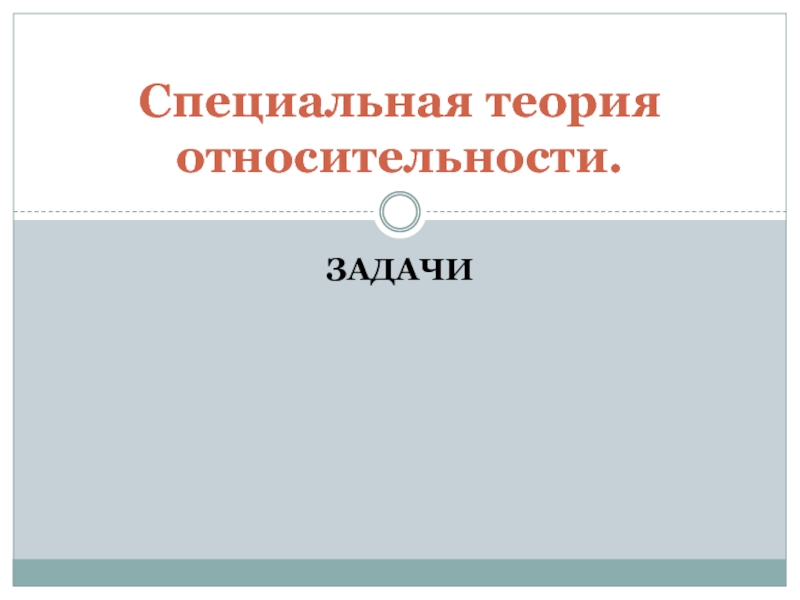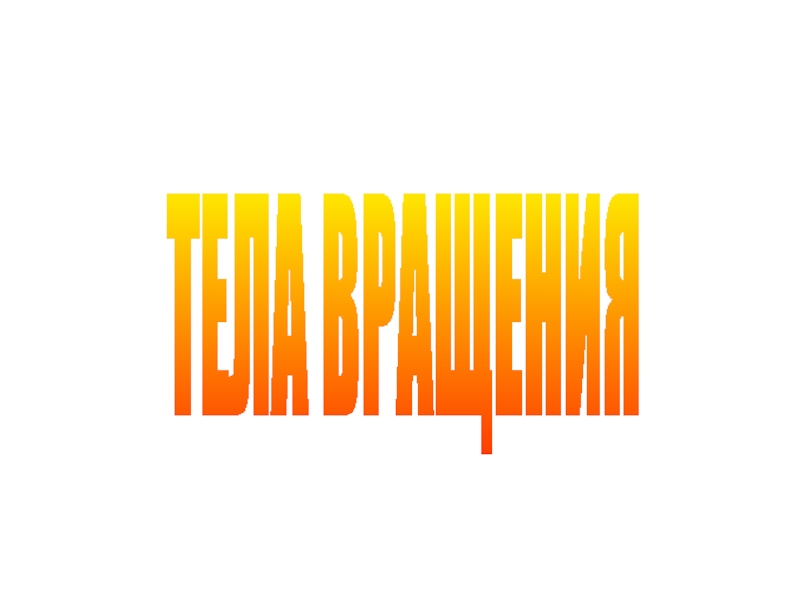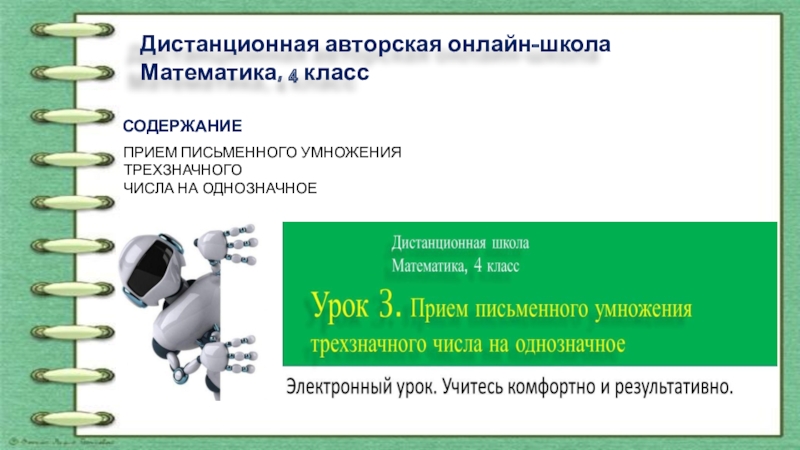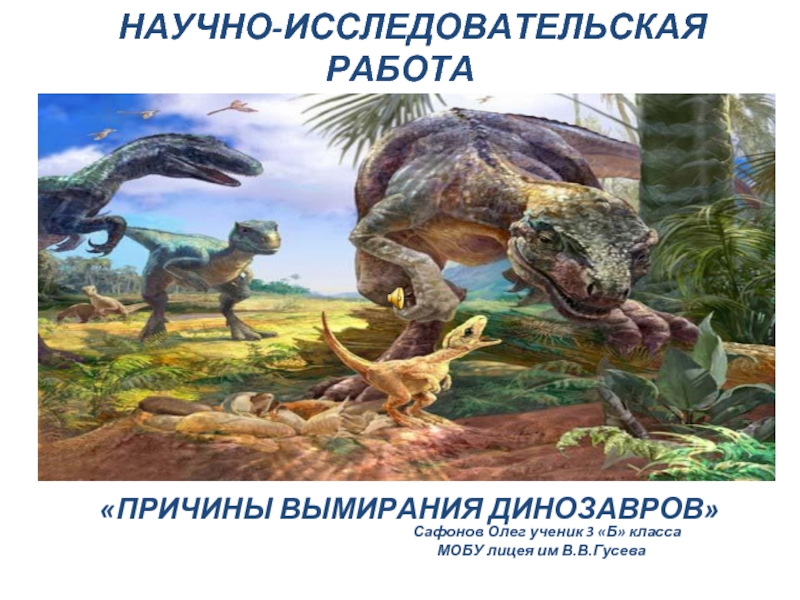Разделы презентаций
- Разное
- Английский язык
- Астрономия
- Алгебра
- Биология
- География
- Геометрия
- Детские презентации
- Информатика
- История
- Литература
- Математика
- Медицина
- Менеджмент
- Музыка
- МХК
- Немецкий язык
- ОБЖ
- Обществознание
- Окружающий мир
- Педагогика
- Русский язык
- Технология
- Физика
- Философия
- Химия
- Шаблоны, картинки для презентаций
- Экология
- Экономика
- Юриспруденция
My family Hero "
Содержание
- 1. My family Hero "
- 2. The hypothesis is the following: the history
- 3. The Great Patriotic War affected the fate
- 4. Thanks to the fact that Germany declassified
- 5. In the first months of the war
- 6. When my great-grandfather went to the front,
- 7. My great-grandmother Vankova Maria Mikhailovna was a
- 8. My Grandmother Tallerman (Vankova) Anna Gavrilovna was
- 9. My Grandfather Tallerman Nikolai Avgustovich. At the
- 10. Nikolai Avgustovich easily took any work, at
- 11. The grandfather did not rest in his
- 12. The research aim is achieved. 1) From
- 13. thank you for your attention!
- 14. Скачать презентанцию
The hypothesis is the following: the history of our grandparents and great-grandparents' life should become a model for everyone who would like to achieve success in the life and to live
Слайды и текст этой презентации
Слайд 2The hypothesis is the following: the history of our grandparents
and great-grandparents' life should become a model for everyone who
would like to achieve success in the life and to live his life with dignity.The object of the research is the family.
The subject of the research is the members of my family’s older generation.
the purpose of this work is to explore the information about the members of my family’s older generation, whose fate is a living thread linking the heroic past to nowadays.
For achieving this purpose we must solve several main tasks, such as:
1. To talk to relatives about our family members;
2. To explore and study archival documents of the close relatives’ fighting in the Great Patriotic War. To find the warriors of the Great Patriotic War among relatives;
3. To design a brochure about the family’s older generation.
Слайд 3The Great Patriotic War affected the fate of many families.
Krasnovishersky district did not remain aside, more than five thousand
people left the region for the front. Among the people who went to the front there also was my mother's grandfather Vankov Gavriil Ivanovich. From my grandmother's story I have learned that he was called to the front at the very beginning of the War and more than 70 years there was no a word from him. After the war his wife was given a notice that her husband was missing. Only in October 2012 our family knew of his fate.Слайд 4Thanks to the fact that Germany declassified the documents about
the war and handed them over to Russia, we managed
to learn that in the beginning of July 1941 Vankov Gavriil Ivanovich was captured in Dvinsk (now Daugavpils, Latvia). The prisoners were taken to Germany to camp "STALAG XD 310" Wintzedorf (Saxony). Also on the website "Memorial" we found our great-grandfather’s camp card from which we could learn about the color of his hair, eyes and the height.Слайд 5In the first months of the war Germany was not
ready to accept a huge number of prisoners. There were
no buildings to live in, the prisoners made themselves dugouts with the help of make-shifts. Due to unsanitary conditions, cold and malnutrition, an epidemic of rash typhoid began in October 1949. Other dangerous diseases were rampant. 300-400 people died every day. Thus, by spring 1942, the camp had died (16,000 people). From the consolidated data bank on the official website "OBD-Memorial" we learned that my great-grandfather died in November 1941 and was buried not far from Wintzendorf in the cemetery of Soviet prisoners of war.Слайд 6When my great-grandfather went to the front, his wife (My
Great-grandmother Vankova Maria Mikhailovna) and three children stayed at home.
He didn’t know then that his wife was pregnant with her fourth child. At the beginning of the war all men went to the front. Women and children had to do their work. Grandma told me what it was very hard. She worked both day and night, overcoming all difficulties. She worked in the collective farm «New Way» in Krasnovishersky District of Molotov Region. She was a ploughshare at night, during the day she cut the grass and took it to cows. Those who worked in the rear also had to pay an agricultural tax on their property. Every month the great-grandmother had to either hand over meat, milk, eggs, wool, pig skin and potatoes or pay a certain amount. It was very difficult because she had to feed and dress four children.Слайд 7My great-grandmother Vankova Maria Mikhailovna was a veteran of the
labor front. She was awarded with the breastplate "Participant of
the labor front" the worker of the rear, was awarded with the jubilee medals for the victory over Germany in the Great Patriotic War in honor of the 40th anniversary of the Victory and the 50th anniversary of the Victory, the medal for diligent work during the Great Patriotic War.Слайд 8My Grandmother Tallerman (Vankova) Anna Gavrilovna was born during the
war, there was practically no food and she had to
do difficult work practically from the early age, to help her family in any way. In order to get knowledge Grandma had to travel huge distances every day as there was no school in the village. Winters were frosty, without warm clothes it was very difficult to do. As a teenager she took a job in the Ust-Yazvin river road. At work she was always held in high esteem for honest work. On the 11th of September in 1984 she was awarded with the breastplate and she was awarded the title «Record-setter of Communistic Work". On the 28th of February in 1986 she was also awarded the order "Veteran of Work". But even with a large farm and a lot of work my grandmother always found time to raise children, always could help them. I always wonder how my grandma found time for everyone because there were three sons and seven daughters in the family. Due to this on October 29, 1982 she was awarded the title "Mother Hero" and the "Medal of Motherhood".Слайд 9My Grandfather Tallerman Nikolai Avgustovich. At the age of five
he and his family were expelled from Leningrad region, and
his father, as it was proved then, was illegally convicted for eight years. When he was small, he studied at school and helped his mother. When he was a teenager, he began to work on the Ust-Yazvin river road.Слайд 10Nikolai Avgustovich easily took any work, at work and in
the village he was respected, he was often appealed for
advice. Even without a full education, my grandfather knew both technology, construction, electricity and other sciences. On the 12th of March in 1962 he received a certificate for an innovation proposal to implement the «Improvement of the Feed Lever on the Piloram». He dealt with wood so well that he was the one to send to work at "MUZ LES DREV" to select wood for the Perm Musical Instruments Plant.Слайд 11The grandfather did not rest in his spare time. He
was the first in the village to assemble a tractor
in order to facilitate his work. The house in which he lived and still his family lives, the bath and all other buildings my grandfather built himself with the help of his sons. In his spare time he liked fishing or working with wood, his furniture was shown at the exhibitions, and there were always many people who wanted to order something. My grandfather was invited to participate in the cultural events of the village. He liked to play the bayan, which he learned by himself.Слайд 12The research aim is achieved.
1) From the conversation with
my mother’s mother I have learned a lot of facts
from the life of our family older generation and realized that our family can be proud of their life.2) The family albums and the Internet helped me find my great-grandfather, a veteran of the Great Patriotic War, to learn more about my great-grandfather, about the difficult life in the rear of my great-grandmother. Thanks to my work I have learned that there are the heroes in our family.
3) I was able to create a brochure about my great-grandfather and great-grandmother, grandfather and grandmother.
The hypothesis made at the beginning of the work was confirmed. Now I know the history of my family, the names of its heroes, and I have somebody to be proud of.
I continue to collect information about my relatives. Time flies inexorably and every year it is increasingly difficult to find invaluable documents. The human memory is erased, our dear veterans die. So we must remember what we have learned from their stories, leave records for the future generations.
